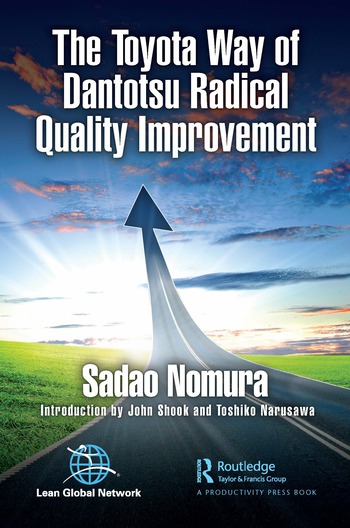Are you a lean change agent on the front lines of building a continuous improvement culture in your company? You probably have a huge responsibility and little authority. You may be feeling frustrated. Why won’t others just listen when you tell them what needs to be done? Why can’t they just go along with what you suggest?
From my observations, the answer is simple: People aren’t wired that way. We are hesitant to accept the idea that anything that is part of “the way things are” needs to be changed –certainly not just because “somebody says so.” This is true even when the person saying we must change is the boss and there is a “show” of compliance. It is certainly true if the person is a CI facilitator or lean coach.
So, what do people look for in a change agent that will help them be more open to the risky business of letting go of something they know (even if it does not serve them perfectly) and adapting themselves to new requirements and conditions?
It may surprise you that I suggest people are looking for something in you as a change agent, not just how they feel about the change you are proposing. While you may be focused on “getting buy in” for a change, the person you are speaking to is considering both the idea of the change and the immediate source of the proposal – you.
Consider the limitations of the role of “change agent”:
- Change agents don’t change people; people have to change themselves.
- Change agents don’t really get very far changing things themselves because if people have attachment to those things they will resist or go along with change for a while, then let “things” drift back to the way they were.
- Being an agent means you are acting for someone or something else. We have neither the position nor power to command change ourselves. We attempt to bring about change on behalf of some higher purpose or person.
A couple of words of caution from experience on that last point especially: “Becoming lean” is not a purpose that engages most people in an organization who do not understand or value the idea of “being lean” in the way advanced practitioners do. Also, acting at the direction of a higher person in the organization who wants “Lean” is necessary and nice, but seldom sufficient to bring about sustained change. In most cases the person who asks us to “make” things lean usually does not understand what that goal implies or involves enough to be his or her own change agent and do the work of changing him or herself to lead it.
The Real Purpose of Change Agents
If you remember basic chemistry (I remember just enough to pull up this connection) the term “agent” accurately captures our function and our limitation as agents of change. In chemistry, an agent is a medium, a substance which makes it possible for other elements to combine, react, and interact to produce a new element. The agent provides a context and is an influence on the other elements, but it is the elements that are introduced in the presence of the agent that interact and combine to produce something with new or different properties. Once again, as change agents, we can make change possible by our presence and influence, but we cannot make the change.
With that definition of our “problem situation” in mind let’s think about what makes an effective change agent. My suggestion, based on 30 years of failures and some successes, is that people need to have faith in both the message and the messenger. The message that change to new conditions for a particular purpose is necessary and has to make sense based on what the receivers know about the situation and what can be shown in terms that relate to their experience. The messenger has to have credibility both as a representative for the higher purpose and as a person. The message needs to be trusted as well-intended. That means as change agents, you need to share it in such a way that it doesn’t come across as your personal agenda or an effort by leadership to take something from or do something to those affected by the change.
For all of these reasons, I suggest working on developing two critical abilities as change agents:
- Be able to tell a compelling story for the change you propose (note I said propose) that makes sense and has justifiable benefit from the perspective of what others know or can see about the situation. We are the ones wanting to change “the way things are.” It is our responsibility to show those with a stake in the current situation that the change is necessary, reasonable, won’t disrupt the rest of the system, and doesn’t require them to lose everything they value.
- Since you can’t rely on authority to command or tell, you have to work at having influence that comes from your ability to connect person-to-person (not as an expert or a salesperson) and engage on an equal basis to think together about a common problem that needs to be solved for the good of all.
Interested in learning more? Join Judy Worth and I for the LEI workshop, Change Agent Skills for Lean Implementation Leaders.






